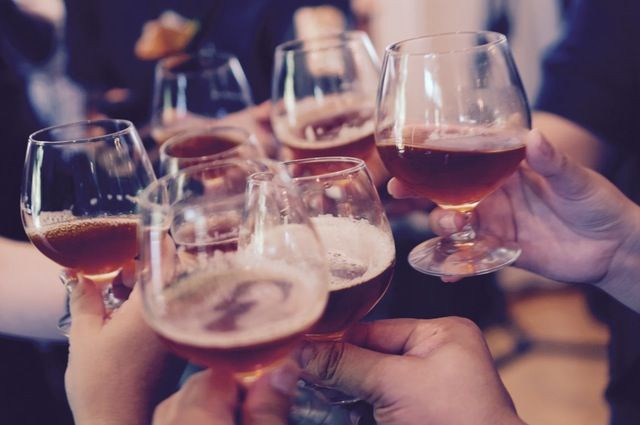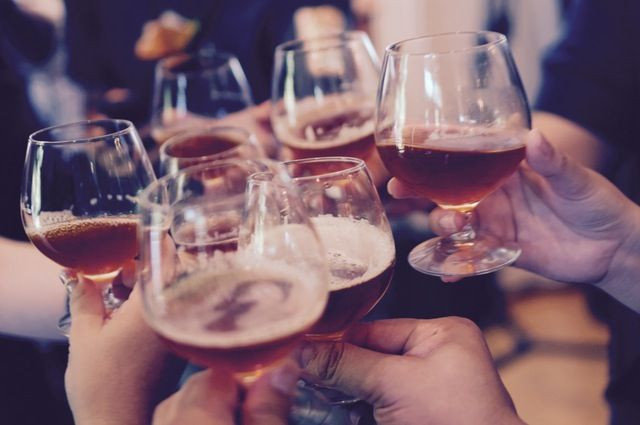Why Stress Causes You To Drink More Alcohol: Rat Study Sheds Light On Brain Chemistry

The sad truth is that stress and alcohol often go hand-in-hand, but the brain chemistry behind this connection has been an enigma to scientists. In a new study published in Neuron, researchers from the University of Pennsylvania looked at the drinking habits of stressed rats, and found that changes in the brain's reward center play a significant role in spurring rats to self-medicate with alcohol.
The researchers found that rats exposed to stress had brains that didn't respond as well to dopamine, a feel-good neurotransmitter, and so needed to drink more to achieve the same stress-relieving effect. The dulled dopamine response was due to changes in their brains' ventral tegmental area, which is considered the center of the brain's reward system, according to a press release from Penn Medicine.

Over several weeks, researchers exposed rats to acute stress for one hour, and then, 15 minutes later, they measured how much sugar water laced with ethanol these animals drank. The research team concluded that the stressed rats drank significantly more than those who weren’t exposed and this increase lasted for several weeks.
Researchers also discovered a change in neuron physiology for the rats who were exposed to stress. Over time, this adjustment altered the rats' response to ethanol, which made them consume more and more of the substance. If the reward circuits were abused, then neurons were altered and the dopamine response was blunted.
"These effects happen at the minute level of potassium, chloride, and other ions moving across the neuron outer membrane via channels and transporters," lead researcher Dr John Dani said in the press release from UPenn. "In addition, by chemically blocking stress hormone receptors on neurons, we prevented stress from causing increased drinking behavior."
Dani further explained that, in the future, these findings could potentially help those suffering with Post Traumatic Stress Disorder. People with PTSD have an increased risk for overusing alcohol and drugs.
Source: Ostroumov A, Thomas AM, Kimmey BA, Karsh JS, Doyon WM, et al. Stress Increases Ethanol Self-Administration via a Shift toward Excitatory GABA Signaling in the Ventral Tegmental Area. Neuron. 2016.
Read more:
7 Health Benefits Of Drinking Alcohol
Work-Related Stress Linked To Health Problems, Early Death, Research Shows
Published by Medicaldaily.com



























